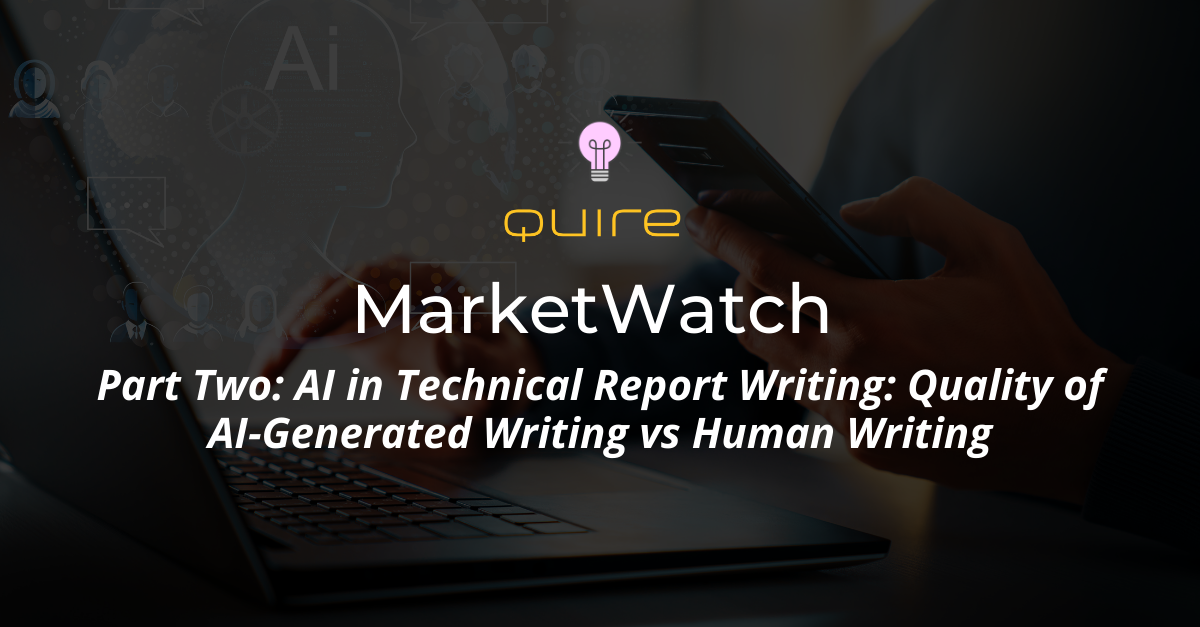For years, Quire has analyzed tens of thousands of Reports from dozens of market lines generated all around the world. As Quire works to provide productivity-enhancing solutions for Clients, we're fully embedded in Technical Report Writing, enriching our understanding of the industry and our Clients' workflows. We've created MarketWatch as a way to share industry trends and insightful takeaways with report-writing professionals both in and outside the Quire solution.
In just a few short years, Artificial Intelligence (AI) has transitioned from a speculative concept confined to science fiction to an integral part of our everyday lives. The transformative power of AI has propelled it from the realm of innovation to an indispensable tool that influences virtually every aspect of modern society. From personalized recommendations on streaming platforms to advanced medical diagnostics, AI's pervasive presence is a testament to the remarkable strides made in its development. At the heart of the buzz surrounding AI is ChatGPT, an AI model developed by OpenAI, designed to generate text that loosely resembles human writing.
In this 2nd installment of our 3-part series, we explore the transformative influence AI has on the field of technical writing and answer your burning questions surrounding Artificial Intelligence and ChatGPT.
Why is ChatGPT relevant to technical Report writing? What are the benefits of using AI? How does AI affect the job market for technical Report writers? Will AI replace human writers? How can AI address challenges with recruiting technical Report writers? Why focus on ChatGPT instead of other AI technologies? What about privacy and ChatGPT? How do you start using ChatGPT?
Download part two of the series to learn how these AI tools such as ChatGPT can be used to enhance human-written content.
